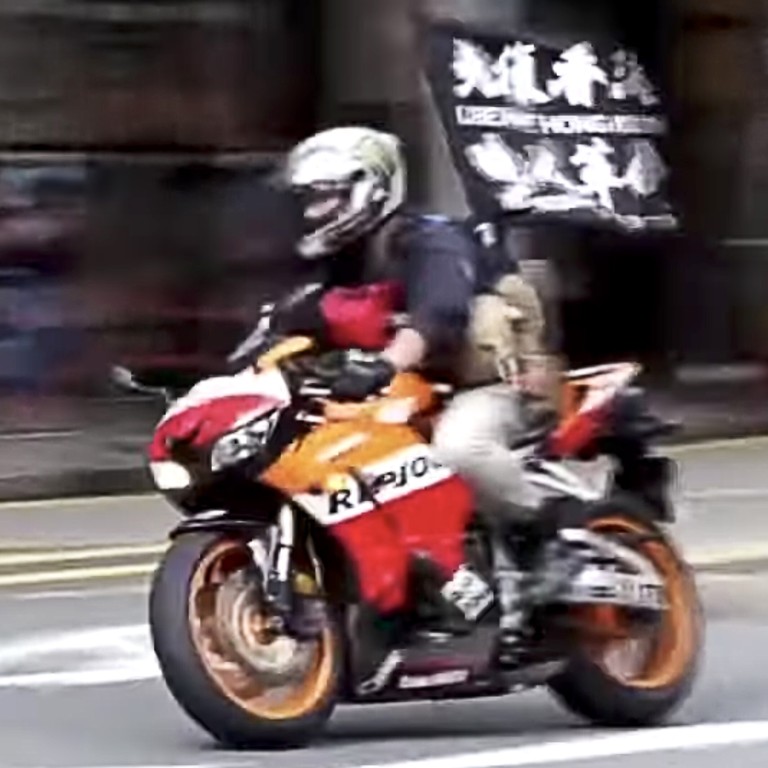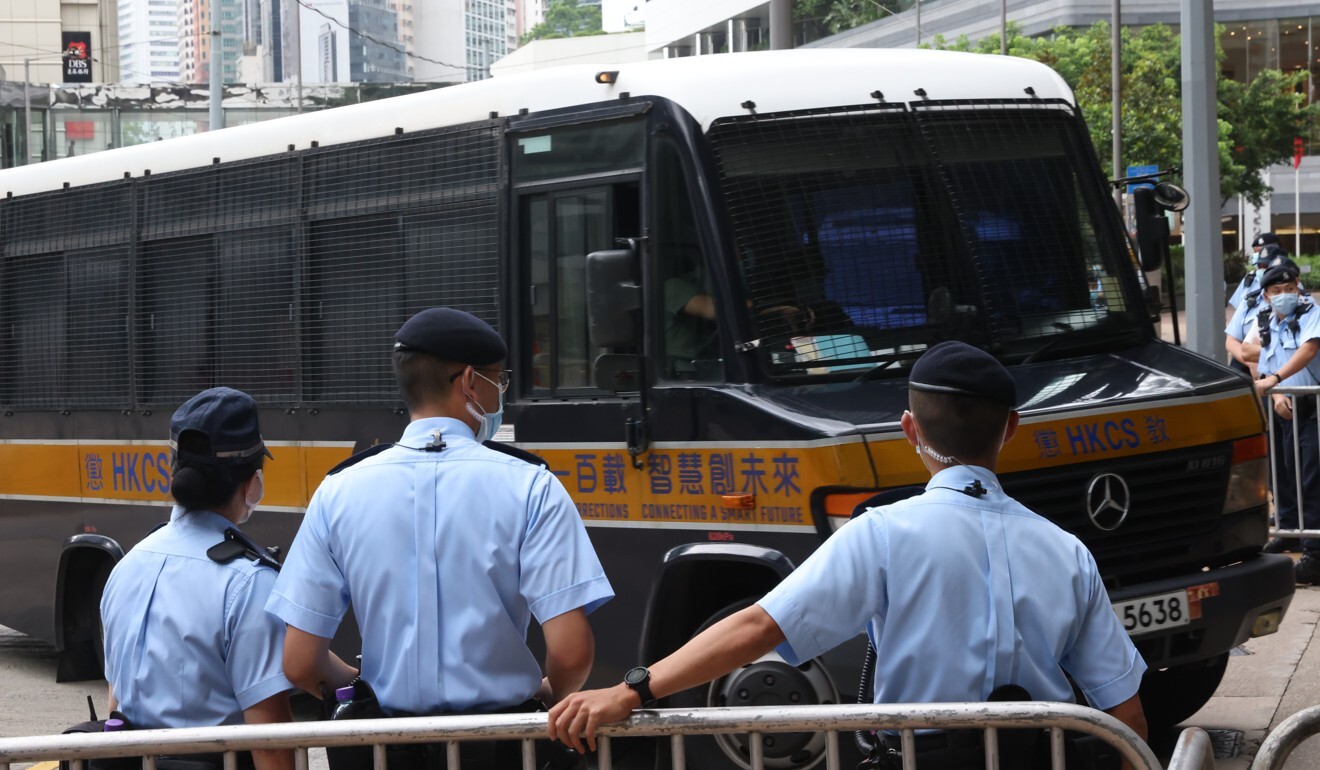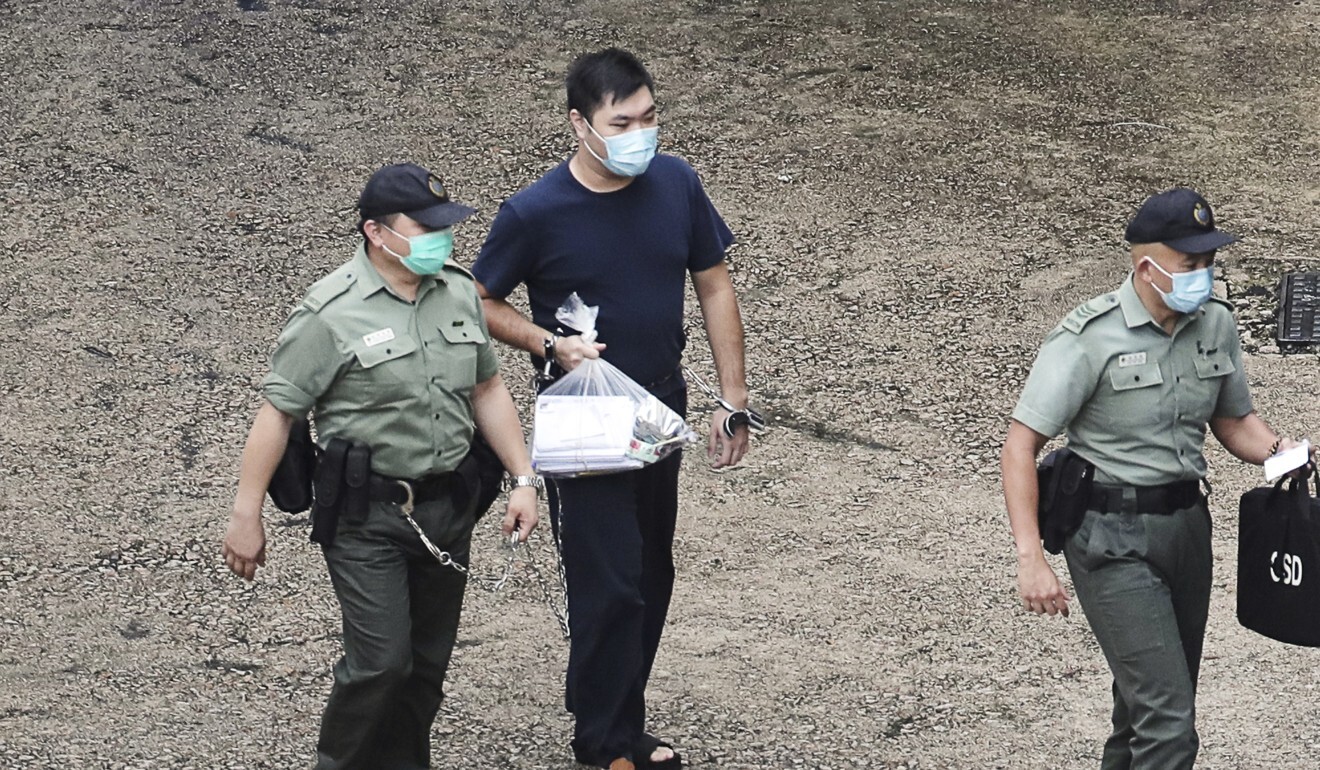
National security law: dangerous driving charge added to Hong Kong case against man who drove motorcycle into police
- Prosecutors win right to bring traffic ordinance charge as alternative should they not be able to prove terrorism under Beijing-imposed law
- High Court judges reject defence argument they were strictly limited to hearing security law cases
Three judges appointed by the city’s leader to hear security law proceedings on Monday granted prosecutors’ request to press a third count of dangerous driving causing grievous bodily harm against Tong Ying-kit, just two weeks ahead of his trial on charges of terrorism and incitement to commit secession.
The fresh charge, which falls under the Road Traffic Ordinance, will serve as an alternative to the terrorism offence, meaning the court will only examine whether the 24-year-old defendant had violated the traffic law if there is insufficient evidence to convict him under the Beijing-imposed security law.

Tong will stand trial on June 23 before three judges – Esther Toh Lye-ping, Anthea Pang Po-kam and Wilson Chan Ka-shun – who were hand-picked by Chief Executive Carrie Lam Cheng Yuet-ngor as members of a pool of jurists to oversee security law cases.
Central to the court debate is whether Tong had the requisite intent to commit the alleged offences and proper understanding of the slogan, as well as the gravity of the injuries said to have been sustained by the officers.
The prosecution applied to add the third charge after a pretrial hearing in April, where the three-member panel held that “great harm to society” must be proven for a terrorist act rather than simply showing serious injuries were suffered.
Prosecutor Anthony Chau Tin-hang said it was in the interest of justice to lay the new charge to properly reflect Tong’s culpability in the incident.
Defence counsel Clive Grossman SC opposed the belated application, saying the three judges were only entitled to rule on security law offences, and it was unfair to the defence, as they had little time to review fresh evidence submitted by their opponents in relation to the new allegation.

But those submissions were rejected by the three judges, who said the prosecution’s application was based on local laws governing criminal proceedings, which also applied to security law cases.
The judges also noted the defence had received all the essential evidence from the prosecution some time before the application.
“The amendment sought is necessary to meet the circumstances of this case with no injustice caused,” Chan said on behalf of the panel.
Tong will return to the High Court on June 16, when parties are to report to the judges on the progress of their trial preparations.
Dangerous driving causing grievous bodily harm carries a maximum jail sentence of seven years, while offences under the national security law are punishable by a minimum jail term of 10 years in serious cases.
Separately, the Court of Appeal on Monday granted Tong’s request to expedite his appeal against a decision by Secretary for Justice Teresa Cheng Yeuk-wah to exclude a jury from his trial, after his initial application for a judicial review was turned down last month.
A lawyer on Tong’s legal team said his client hoped to have a last shot at a jury trial. The appeal will be heard on June 15.
